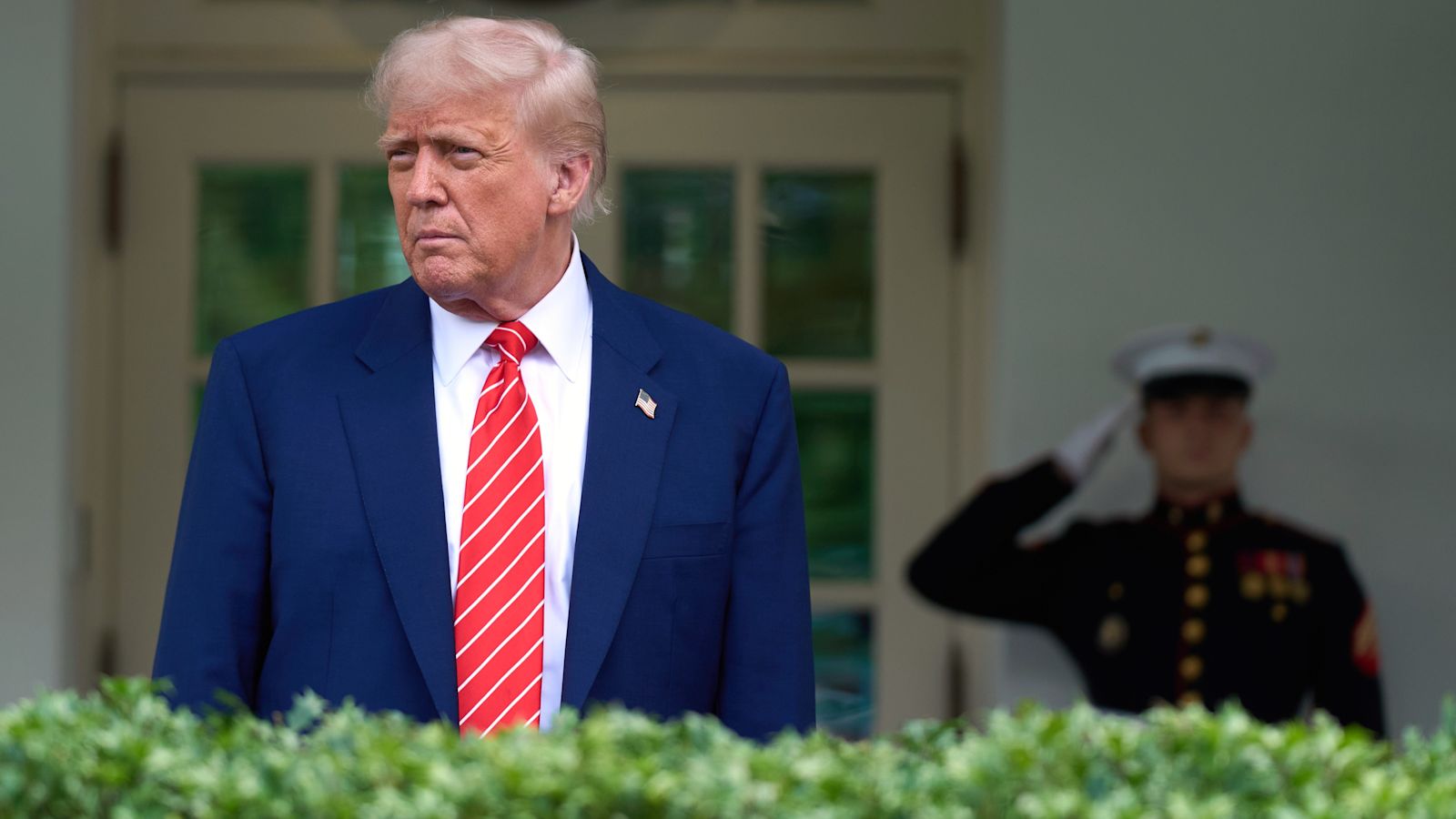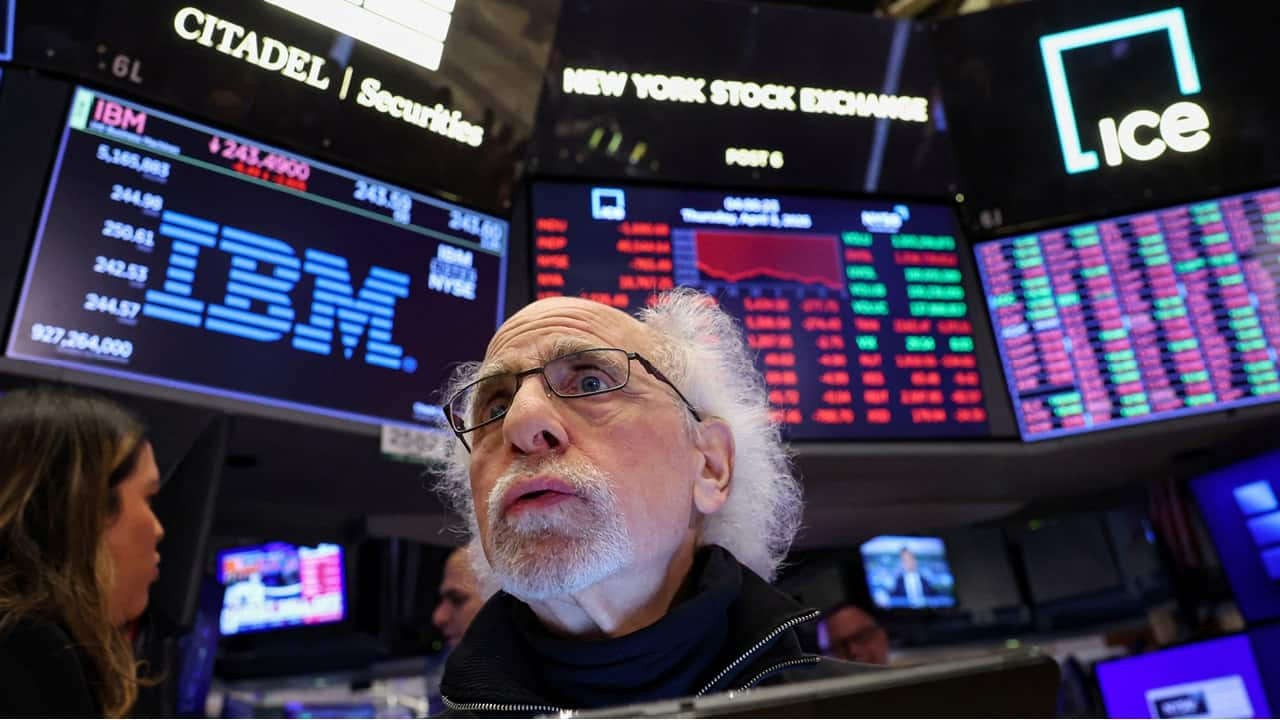Trump Floats China Tariff Cut to 80%

Donald Trump has suggested reducing tariffs on China from 145% to 80% prior to a meeting between US and Chinese trade officials in Switzerland. This marks the first significant discussion between the two countries since Trump initiated a trade war with China. Trump stated on social media that an 80% tariff on China “seems right,” deferring to Scott Bessent, his Treasury chief, who is a key figure on trade matters. Trump also urged China to open its markets to the US, emphasizing that closed markets are no longer effective.
Scott Bessent and US Trade Representative Jamieson Greer are scheduled to meet with their Chinese counterparts in Geneva, representing the highest-level discussions between the two countries in recent months. China, as the world’s largest exporter and second-largest economy, has been significantly affected by Trump’s trade war. Following Trump’s announcement of tariffs, China retaliated with its own tariffs, which Trump viewed as disrespectful. The tariffs have escalated, with US tariffs on Chinese goods reaching 145% and Chinese tariffs on US goods at 125%.
Trump had previously stated he would not lower tariffs to hold substantive talks but indicated a potential softening during an Oval Office appearance, suggesting he “could” lower the 145% rate if the weekend talks progressed well. He acknowledged that the 145% tariff was unsustainable, effectively acting as an embargo on trade between the two countries. The Trump administration aims to reconcile conflicting goals, seeking both tariff revenues to offset income tax cuts and increased market access for US goods, which would likely require lower tariffs.
CNN reported that Trump set negotiating terms for the discussions with China, advocating for China to import more US goods in exchange for the US lowering its tariffs on Chinese goods from 145% to 80%. According to Ryan Petersen, CEO of Flexport, shipments from China to the US have plunged by 60%. Economists suggest that a 50% tariff threshold is necessary for the return of normal business between the two countries. Goldman Sachs analysts predicted that a key measure of inflation would double to 4% by year-end due to the trade war. Even with zero tariffs, the US would still face price hikes and shortages temporarily.
China reported a 21% drop in exports to the US the previous month. Trump stated that the reduction in shipments from China means the United States is no longer losing money. Kevin Hassett, Director of the White House National Economic Council, indicated that any changes in tariffs would occur during the talks, not before. Bessent mentioned that the discussions aim to de-escalate the frozen trade relationship, emphasizing that fair trade is the goal, not decoupling. A report on gross domestic product revealed America’s first economic contraction since early 2022. Bessent estimated it could take two to three years for trade to normalize with China.
Sky News reported that Trump has floated cutting US trade tariffs against China to 80% as key peace talks are set to begin. The meeting is an opportunity to ease the damaging effects of the trade war. Trump stated on his Truth Social platform that an 80% tariff on China “seems right,” leaving the decision to Scott Bessent. The outcome is eagerly awaited after tariff hikes that total 125% on US imports to China and 145% on Chinese goods arriving in America.
Financial markets have responded positively to the announcement of talks, with the dollar and global stocks rising in anticipation of reduced trade hostilities. Investors are concerned about higher prices and the impact on supply. The US economy contracted during the first three months of the year, and the US central bank has held off on interest rate cuts due to tariffs potentially lifting inflation. China's central bank cut interest rates and reduced bank reserve requirements to help manufacturers, aiming to bolster activity and lift prices amid deflation concerns. China has signaled that it wants the US to make the first concession. White House economic adviser Kevin Hassett noted that the meeting in Switzerland is very promising, with extreme respect and sketches of positive developments.










